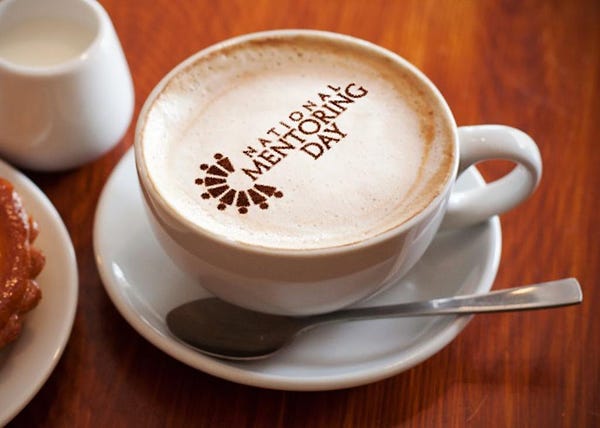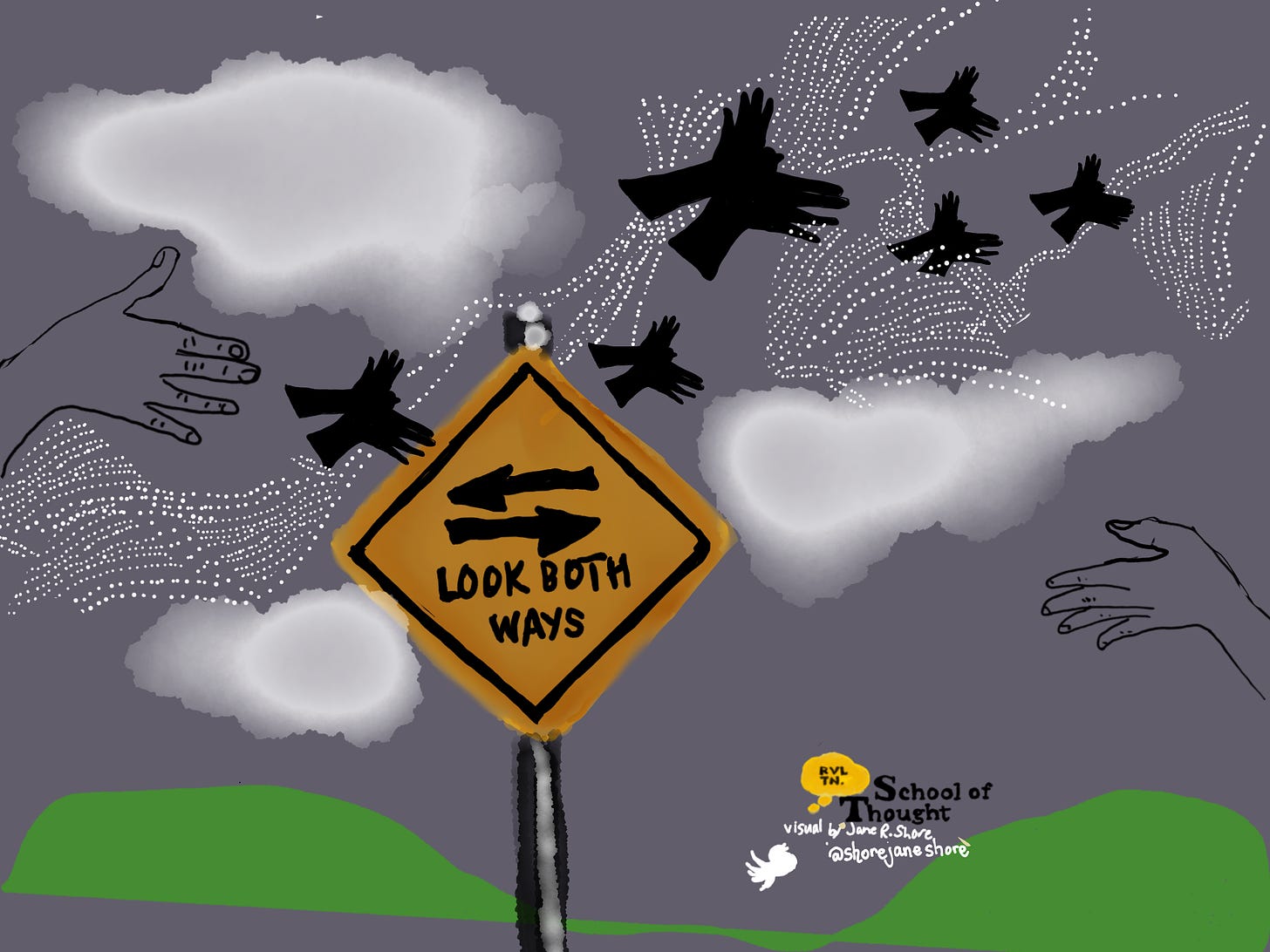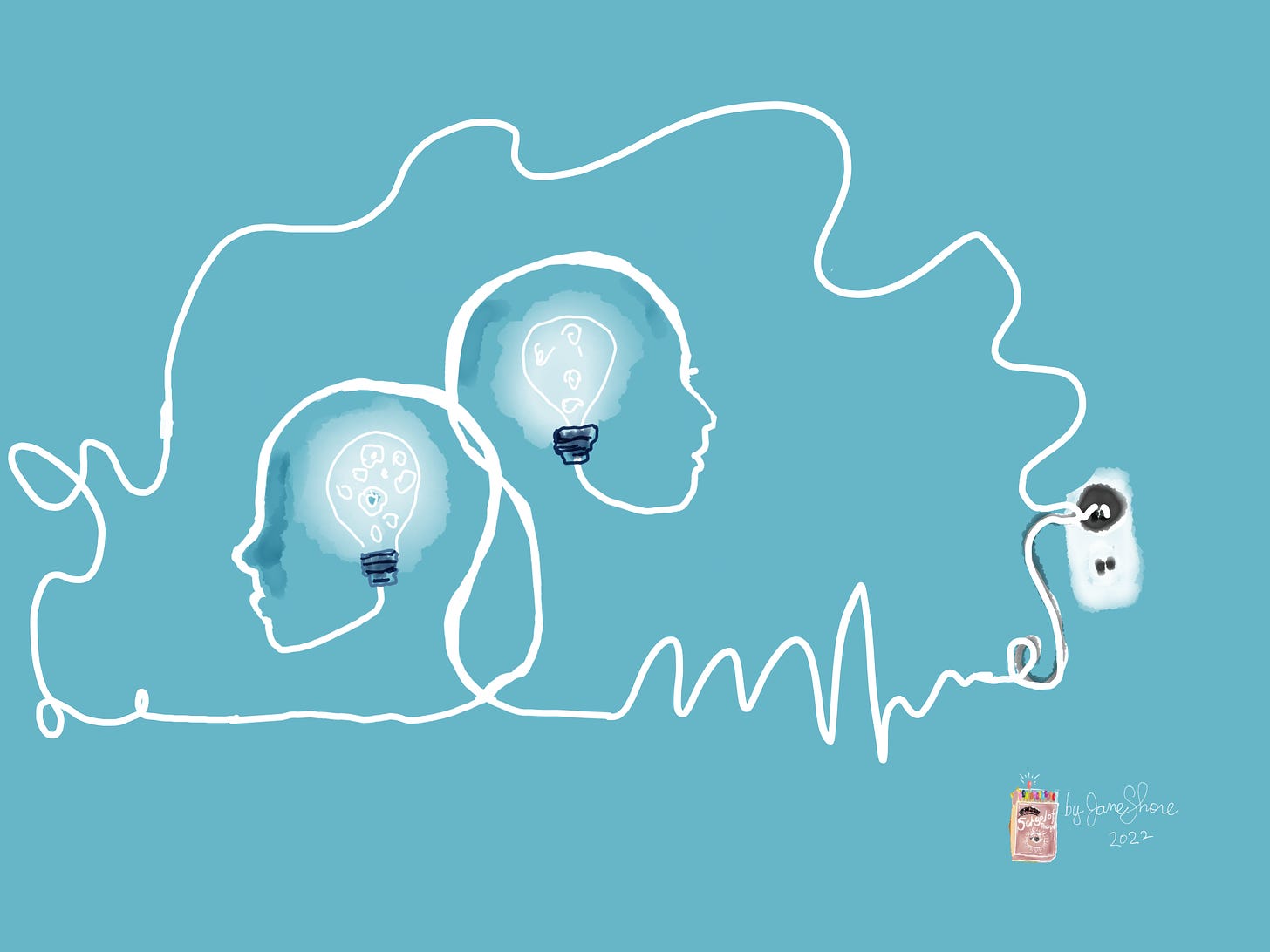“You know, you do need mentors, but in the end, you really just need to believe in yourself.” — Diana Ross
“Mentorship is not about age or title, it’s about action. It’s not about pushing wisdom from the top down or bottom up, it’s about sharing wisdom all around. A moment of mentorship can lead to a lifetime of impact.” - Shelley Zalis, for Forbes
More than two decades ago, Jack Welch, the former CEO of General Electric (GE), sought out a young mentor in the organization to help him learn. With success in this pairing, he “suggested” that his senior colleagues find fellow employees under the age of 25 and arrange to meet with them to learn how to navigate a business world dominated by new technology. In what became his pilot project, 500 senior and junior employees were paired, in hopes the latter would teach the former about this new thing called the internet.
“We tipped the organization upside down,” he explained. “We now have the youngest and brightest teaching the oldest and most experienced.”
With this, the term reverse mentoring was born.
In the decades since, reverse mentoring programs have found great success, leading to improvements in organizational culture building, engagement, retention and overall satisfaction.
This post calls for an end to the use of reverse mentorship.
If you like what you read, please click the ♥️ above. I would love to hear from you!
The Big Idea
It’s not the practice that needs to end. It’s the name (and mindset) that’s problematic.
Here is why:
The definition of the word reverse: Contrary in position, direction, order, or character. Or To move backward. Merriam Webster Dictionary
REVERSE mentorship means that it is not the norm, against the grain.
Mentorship is bi-directional. If we approach a relationship and call it ‘a reverse’ it presumes that it’s unexpected for younger people to teach older ones.
The term has us clinging to an outdated notion: that learning normally occurs from old to young. It reinforces that it is unusual for younger people to have something to offer or teach those of us who have been around longer.
The proposal is to call it what it is: mutual mentoring.
Mutual mentoring is a non-hierarchical developmental relationship based upon mutual reciprocity between two individuals. Work has always been multi-generational, and mutual mentorship acknowledges and elevates the value of such diversity of exchanges .


Mutual mentoring is both a practice and a mindset. In research on mutual mentorships, the benefits are clear:
Mutual mentors empathize with their counterparts, which reduces conflict.
Mutual mentorship fosters greater cooperation, collaboration, and inclusion.
Mutual mentorships increase morale, which results in greater productivity and the development of learners and leaders.
Mutual mentoring mindsets see the value of generational diversity of thought. It is the acknowledgement that every age and stage has something to teach and something to learn from the others. @rvltnproject Click to tweet 🐥
Making Big Ideas Usable
Organizations and SCHOOLS that celebrate the mutual mentoring mindset benefit. Here are some things I’ve learned as a part of many mutual mentoring relationships.
It’s WITH not TO.
A mentor “talks to you”, and a mutual mentor “talks with you.” There is a big difference.
Mutual mentorships replace one way apprenticeships.
If mentoring is to establish more diversity, equity, and inclusion across sectors, we must reimagine the power dynamic of the mentor/mentee roles. A model of mutual exchange is not configured along the lines of age and position in the workplace, where an expert is training an apprentice. Mutual mentorships are exchanges of knowledge, skills and support regardless of experience or title.
Mutual mentorship routines allow serendipity to happen.
That sounds like a paradox. Even if a meeting starts agenda-less, the question is still: what do we want to accomplish? Good mutual mentoring relationship requires commitment – both parties have to agree to regular check-ins and ensure they’re covering all the key goals and milestones. In mutual mentorships, this means time (turn taking?) for both to share challenges and dig in together.
Mutual mentorships evolve…organically
Although formal mentoring programs exist successfully, it is the informal that have been found to be more sustainable. The unofficial, voluntary, mutually agreeable, and self-selected interaction between two people focuses on humans meeting humans first, and distinguishes successful programs.
Mutual mentorships are grounded in both commonality and difference
As the psychologist Robert Cialdini sums up the evidence from Influence, "Similarity literally draws people together." In Give and Take, Adam Grant elaborates on this principle to point out that similarities matter most when they're rare.
“We bond when we share uncommon commonalities, which allow us to feel that we fit in and stand out at the same time.” [Quartz]
The next thing to keep in mind is equally important: establish the differences- settings, experiences, and generational knowledge are valuable to share.
Learning is never linear, it is not one-sided, and everyone has something to share. All mentoring is an opportunity for mutual mentoring, where the perspective and diversity of thought are acknowledged as valuable.
It’s time for a more human and equitable approach to growth and development, one that does not see age or a certain kind of experience as a limiting factor, but as an opportunity. @rvltnproject
Critical Connections
Grateful for continued connections. Thank you for your the many ways you show up in the world, @chekemma


Appreciate the connection and call out!
If you’re seeing this blog for the first time, you can read previous issues and ✓ SHARE what you learned. Not only does it help improve retention, but it also leads to ACTION.
Or just let us know you are out there by ENGAGING on Twitter. Pls tag us @Rvltnproject or @shorejaneshore and use any of the hashtags #theRVLTNbeginswithUS #schoolofthought #mutualmentorship ❤️
Would you like to read more? Another Big Idea and how to Make It Usable is here.






Very interesting. You make a good point.
The tech gap between 'senior' and 'junior' levels is also decreasing.
Mutual Mentorship - this needs to be a mindset in all fields, in all areas of life.
-M. Campesi